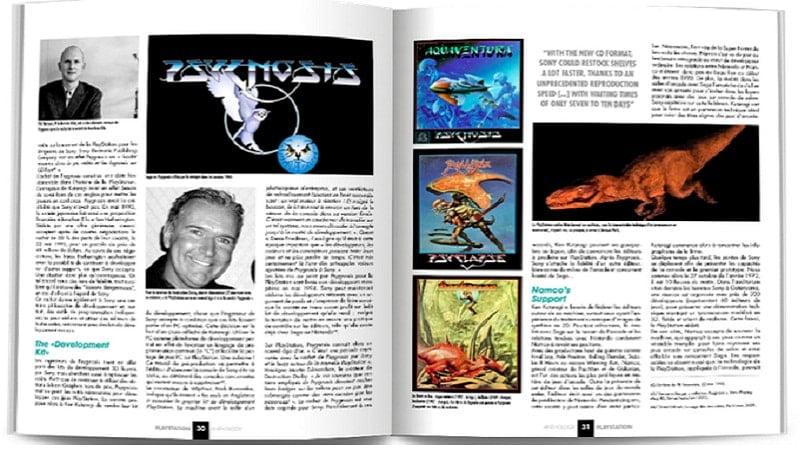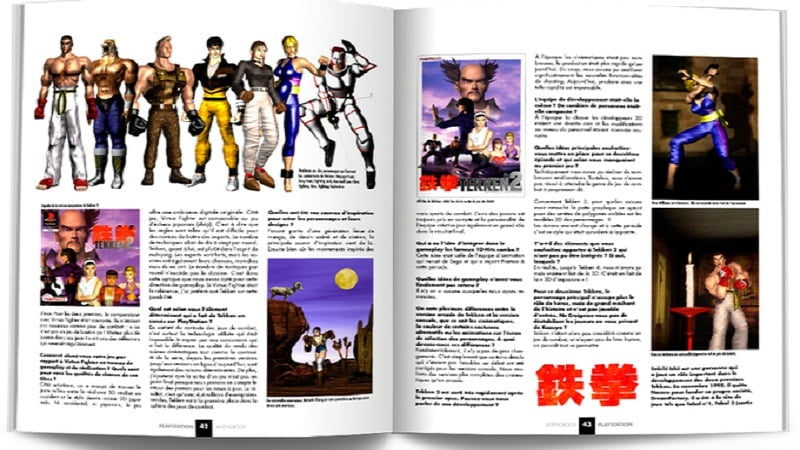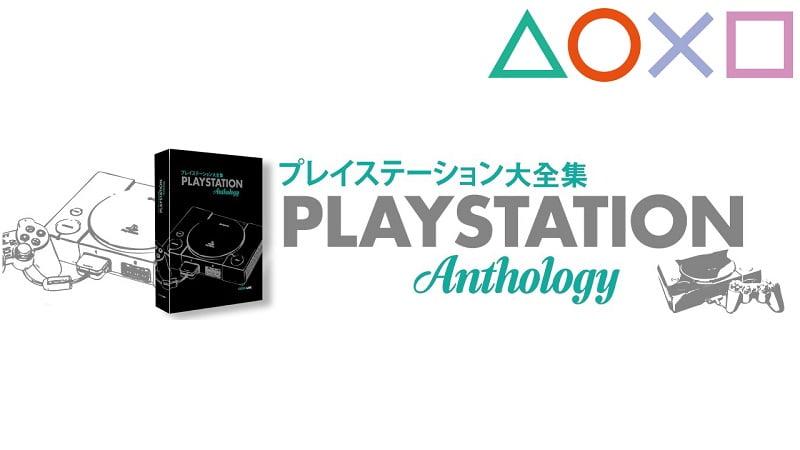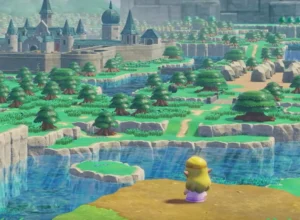Geeks-Line’s latest coffee-table volume, PlayStation Anthology, takes on Sony’s iconic machine. Join us as we dive in and explore one of the most exciting times in the industry’s history.
Who amongst us hasn’t a little pocket of time in which the sharp edges of our criticism doesn’t find itself dulled? A time in which the rose-tint descends, and we find ourselves in thrall to the smell of booklets, the sight of screenshots on the back of boxes, and the promise of escape as strong as it ever was.
Such is the nature of nostalgia, and it’s a movable feast: one that Geeks-Line seems intent on chasing, like a migratory bird following the sun. Authored by Fabien Mellado, Mathieu Manent, Antoine Clerc-Renaud, and Franck Latour, PlayStation Anthology follows in the mould set by their first book, N64 Anthology. It’s a culmination of interviews (26 in total), pages dedicated to the games you remember, collectibles, snippets of unreleased treasure. It is, as its brief blurb on Kickstarter promises, “A work of reference.”
Dan really rather liked the N64 Anthology – that’s his little pocket of time – and if you were one of the opposing tribe, warning people not to underestimate the power of PlayStation, then this one will spirit you away. Certainly Geeks-Line CEO Jean-Marc Demoly seems to be: he begins the book by saying, “A piece of art to a sensitive soul often serves to fill an unknown void. Such was my case when I first discovered the PlayStation.”
It’s a hefty (385 page) volume, bound in black hardback (the Classic Edition at least), and adorned with artwork like a Warhol Print. In fact, the PlayStation, with its raffish marketing – nose-bleeds, Lara Croft crucifixes, bandaged bloodied hands – and irreverent air, is every bit as it’s described in the anthology: “Mature, animalistic, aggressively artistic.”
When you set out, you may run into some amusing turns of phrase. It’s translated from French, so there are minor typos and syntax errors throughout. These are ultimately unimportant, but in a glorious coffee-table edifice like this with all its lavish trapping, it’s an irritating taint on something passionately put together.

But it’s also oddly charming. It gives the impression of someone tripping over their words as they lead you through the museum of their obsession with the garrulity of a docent. Beyond the games themselves, you will find insight into Sony’s beginnings in post-war Japan: an intriguing tale of ambition, economic boom, and ingenuity. It guides you through bomb-shelled districts and an economy defibrillated with federal money and crutched with burgeoning companies rising from the ashes of the Zaibatsu – big-business monopolies that General MacArthur dismantled.
It’s an unexpected history lesson that skims you through the better part of a century before depositing you at the launch of the PlayStation in 1994. And it doesn’t stop there, staying with Sony’s fledgling console through even the launch of the PS2 and the PSP, staying with its charge and illuminating more than just the console’s knack for innovation, but its longevity.
That the book can cover its bases from Akio Morita and Masaru Ibuka, Sony’s founders, to asking Charles Cecil how far he went with his research into the Templars – and the answer being delightful – is impressive. That it sashays from treasures like the R4: Ridge Racer Type 4 Collector bundle (replete with t-shirt, cap, and sticker sheets), and mentions the unreleased (though 100% complete) Superman game, is a real thrill. There’s even a section dedicated to the western handheld gamer’s holy grail, the PocketStation; I felt like a pig luxuriating in a mud bath.

The interviews open the door ajar to the humble humour of some of the myth-makers. At one point Jason Rubin talks about the making of Crash Bandicoot, saying, “We chose to have the camera pointed at the character’s back. We called it the ‘Sonic’s Ass Game’ because that’s all you would see.”
Elsewhere, there are some hilariously baffling answers: at one point Suda Goichi reveals his fondest memory of the PlayStation era, saying, “I was a particularly big fan of the western games.” What a moment!
It is strange, and a little ironic perhaps, that in a book devoted to cataloguing and historicising video games, its shortcomings are of the technical and logistical kind we levy so often at games themselves. The irritating spelling errors, the blown up images that have become heavily pixelated, and the odd bit of syntax: these are small blights on a richly-detailed, well-researched package that would brighten the day and the coffee-table of any nostalgic gamer.






